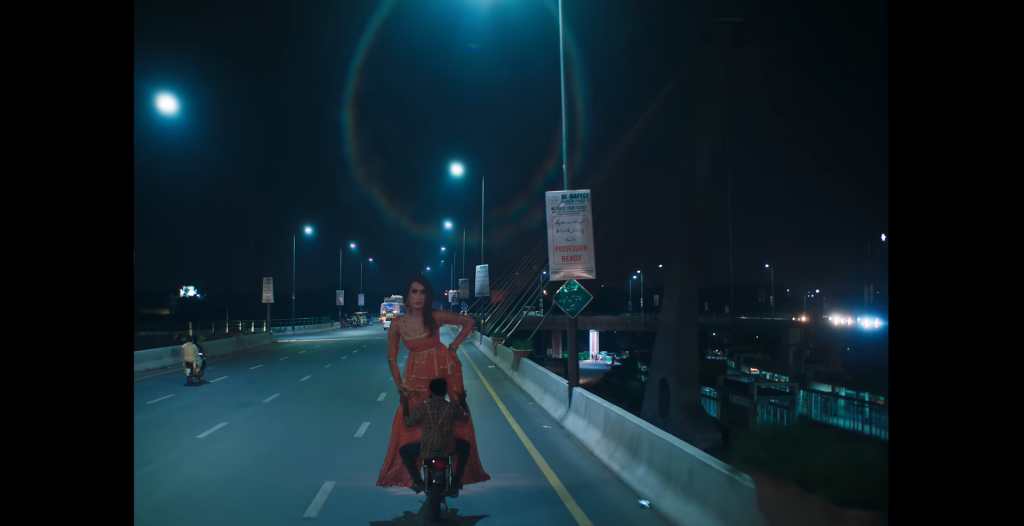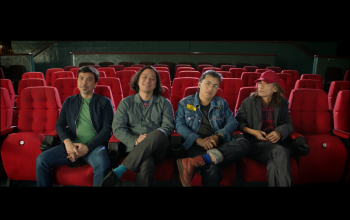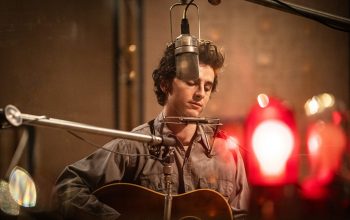Joyland, as shown in the film, is an amusement park located in Lahore, Pakistan. It seems that anything is possible inside Joyland. The rides are thrilling, you can have fun, and freedom is alive and felt. But amusement parks are walled, and it requires payment to get in. Unfortunately in Pakistan, “fun” and “freedom” in general requires a huge amount, and it’s not even just money that it demands.
The film follows an obedient son and husband Haider, trying to be the man that his family wants him to be by looking for a job and giving a son that will continue the family line. But as he got a job as an erotic dancer and fell for a transgender Biba, will he be able to be “man” enough?

Comparing this film to an amusement park is such a beautiful idea, because it is outright stating that pleasure is just a place to visit from time to time, not a human right or feeling. When the camera pans to the walls outside Joyland, the place is decayed with poverty and misery. The sexual desires, aspirations, longing, love and empathy were all hidden in dark rooms, in the outskirts, on dead-ends, inside abandoned buildings. These thoughts are only whispered or peeked at the windows. It felt as if everything that makes us human is an illegal trade here.
Each character was highlighted with their own desires and despair, and the decisions they made came with a great price. Sadly it wasn’t worth it. They weren’t blind or ignorant with what’s happening with one another, and yet they have to be. Because that’s what their culture dictates, that’s what comes first. The expectations from their religion, from their neighbors, from the legacy that the family built throughout the years. The 4:3 format was an obvious fact that these characters were living inside a box, despite them having thoughts and longing that went beyond it. Not only were they trapped inside the house, but also in their own heads, imagining how it would be if they weren’t living the way that they are. Even as an audience, the oppression was felt in five senses.
This is Saim Sadiq’s debut feature film, and he’s telling such a bold and tenacious statement. It wasn’t a surprise that this is a personal film for the director, as he grew up near a transgender community in Lahore. He didn’t waste his time by making the film overly dramatic. He showed everything with candor and compassion, and this is not something you can ignore after.
It was a surprise, however, that this is the debut feature of its three main stars Ali Junejo (Haider), Rasti Farooq (Mumtaz), and Alina Khan (Biba).It looked as if they were born to take these roles. Even as actors, it’s very brave of them to make these characters alive in a country that doesn’t want them. Especially with Alina, who’s a real transgender woman. I would also like to commend the transgender community that was shown in the film, who are Biba’s friends. I hope that after this film, nobody can make them feel small anymore.
No wonder that the Pakistani government is limiting the screenings of this film. Not only the film showcases the transgender community they’re trying to hide, but also the criticizing of faith and patriarchy that still lives on in the country. Thankfully, the said limitations sparked conversations in the country and made the film even more relevant. I am deeply hoping that after this film is shown all over the world, Joyland will not just be a walled paradise, rather a place for everyone to express who they are with no price or soul to sacrifice.
The film premiered on PH cinemas through the QCinema International Film Festival 2022’s Rainbow QC section which features films about the LGBTQIA++
![This ‘Joyland’ review examines the parallels of the characters living in a [societal] box](https://www.filmpolicereviews.com/wp-content/uploads/2022/11/Joyland-1170x603.png)



